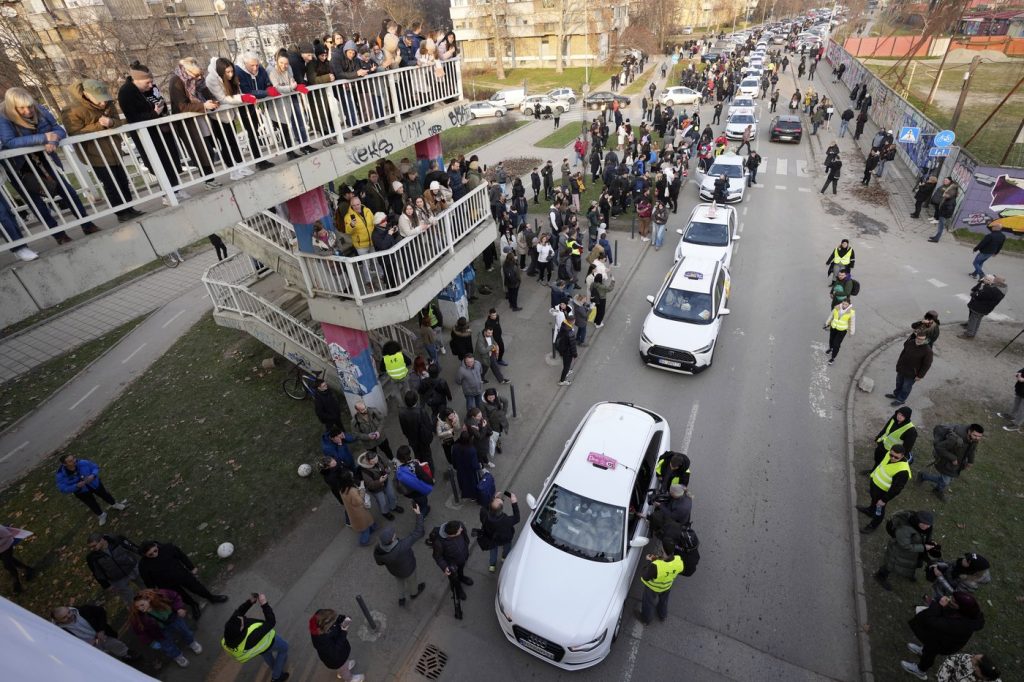BELGRADE, Serbia (AP) — On February 2, 2025, after a two-day trek and a night spent outdoors, university students in Belgrade who were protesting against government corruption received a free taxi ride back home. This act of solidarity came from hundreds of taxi drivers who organized to transport the students from Novi Sad, where they had staged a day-long blockade of bridges as part of a growing anti-corruption movement across Serbia.
Sava Jovanovic, one of the organizers of this initiative, remarked, “This was all spontaneous, about 20 or 30 of us launched this.” He expressed a communal sentiment, stating, “They are our children, our students, we are going to bring them home.” The protests, primarily led by university students, were sparked by a tragic incident that occurred on November 1, 2024, when a concrete canopy collapsed at the central train station in Novi Sad, resulting in the deaths of 15 individuals and leaving two others in serious condition.
The incident ignited protests throughout Serbia as demonstrators called for justice regarding the Novi Sad catastrophe, which critics linked to negligent renovation efforts driven by corruption within the government. Notably, the response from taxi drivers has been described as “exceptional” by Nikole Bogdanovic, a taxi driver involved in the effort. Approximately 500 drivers, some hailing from central Serbia, participated in the initiative, demonstrating significant public support for the students’ cause.
The taxi drivers formed a large column, honking their horns and waving Serbian flags as they made their way from Belgrade to Novi Sad. They were met with cheers from bystanders and fellow motorists along the route, and their vehicles bore signs declaring them as ‘student taxis.’ Upon reaching Novi Sad, they were greeted with a warm reception, including a banner reading: “Students will free the world.”
Radoje Tosovic, another Belgrade taxi driver, shared his motivation for participating in the event: “I have grandchildren; my motive is a struggle for their better future.” He emphasized the importance of standing with the students, whom he described as “what is the best in our society.” The students’ demands for law and accountability, combined with their show of empathy for the victims, have resonated deeply with a populace weary from enduring years of political and economic instability.
Throughout the protests, whether during the blockades or while walking 80 kilometers (50 miles) from Belgrade to Novi Sad, the students received food, drinks, and encouragement from local residents. Many onlookers were moved to tears as they witnessed the solidarity and determination being displayed by the youth. Dejan Jovic, a taxi driver from Belgrade whose daughter is among the demonstrators, noted the significance of the students’ actions, stating, “They walked for 80 kilometers (50 miles); we are going to bring them home.” He expressed a sense of renewal in the community, remarking that “something very nice has been rekindled again, something we haven’t seen in a long time.”










